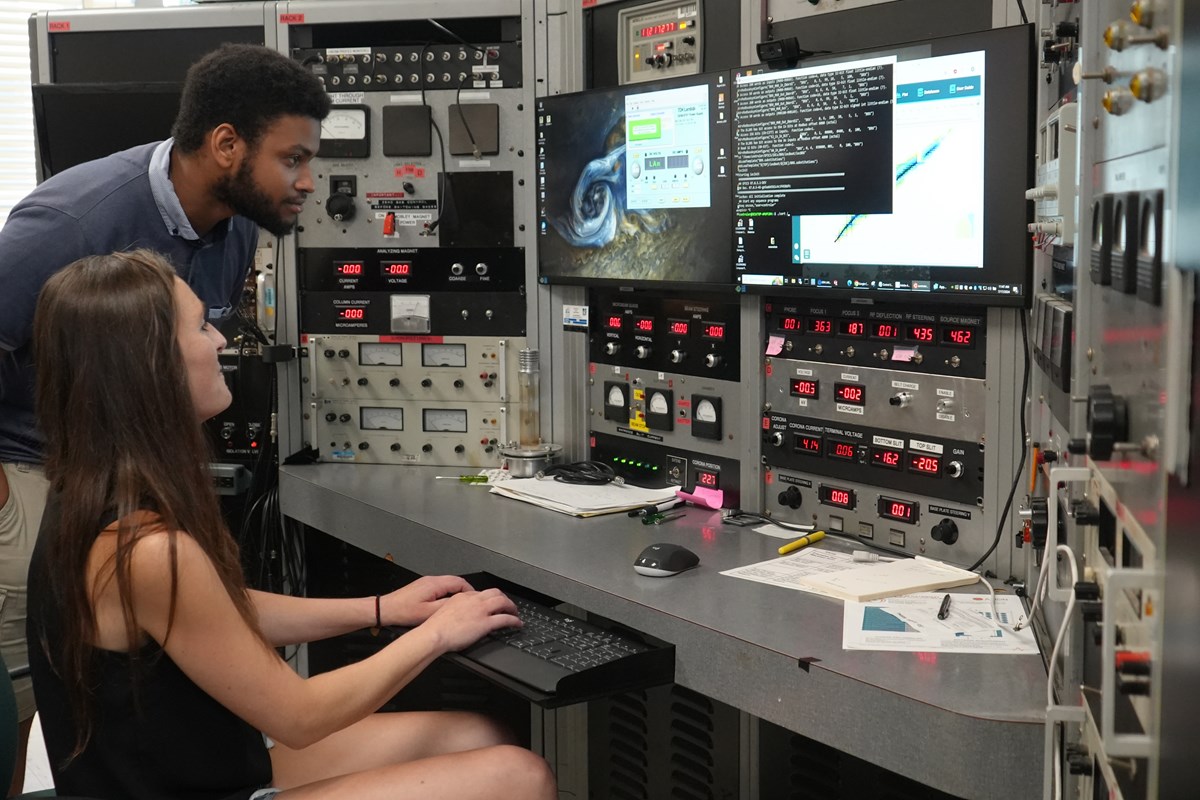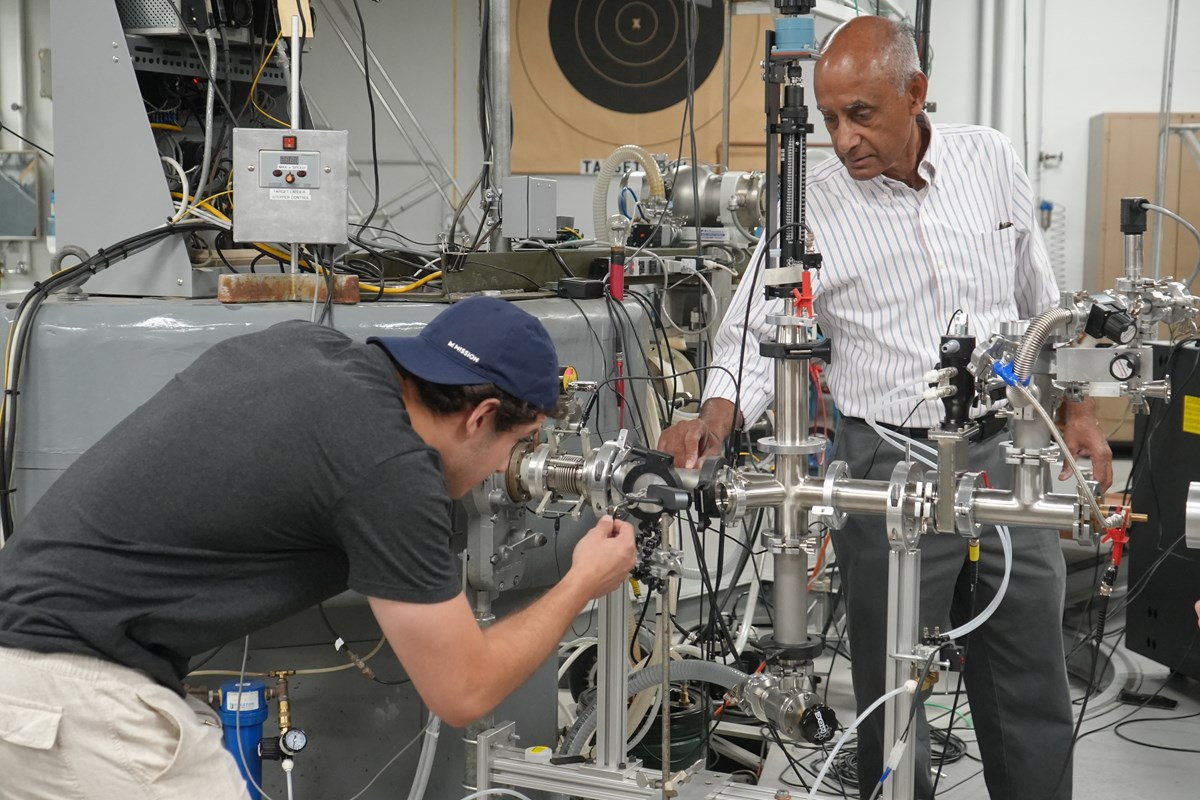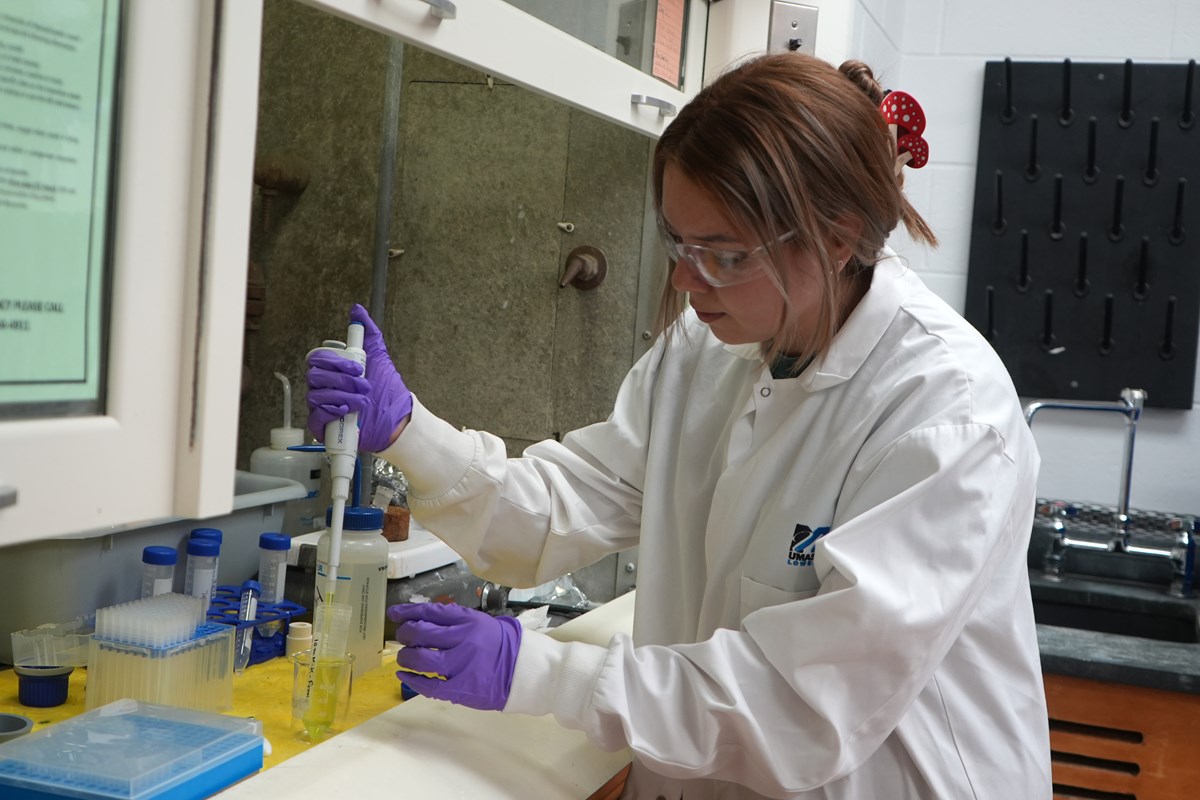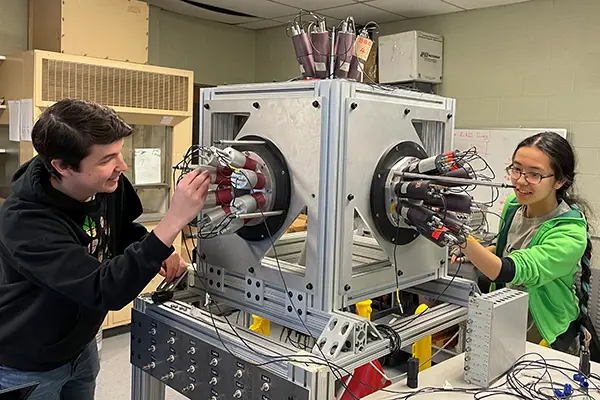 Image by Courtesy
Image by Courtesy
The community college students stand around the open terminal of the particle accelerator with Assoc. Prof. Andrew Rogers, back right.
A new 10-week summer program at UMass Lowell’s Radiation Laboratory introduced six local community college students to a field they had never explored — nuclear science.
“That’s the cool part,” says Luis Ramirez, who recently got an associate degree in electrical engineering from Bunker Hill Community College. “I get to learn about a new topic in physics.”
The Nuclear Recruitment Through Undergraduate Research (NURTURE) program aims to diversify nuclear science by providing paid experience in the field to minority community college students. The program is funded by a three-year, $315,000 grant from the U.S. Department of Energy.
“The goal is to make the students more knowledgeable about what we do in nuclear science so they can see that this may be a career path for anyone interested,” says Prof. Partha Chowdhury, who is running the program with fellow Department of Physics and Applied Physics Profs. Andrew Rogers and Peter Bender.
 Image by Brooke Coupal
Image by Brooke Coupal
At the particle accelerator control center, Jodi Zangari types as Pierry Anglade looks on.
Beginning in May, students spent five days a week learning the fundamentals of nuclear science while getting familiar with the on-campus nuclear reactor and particle accelerator.
“The hands-on experience that we can provide with the facilities that we have is invaluable,” says Bender, who is a member of UMass Lowell’s Experimental Nuclear Physics Group alongside Chowdhury and Rogers.
For Middlesex Community College student Jodi Zangari, the close proximity of the facilities to her hometown of Billerica, Massachusetts, made the NURTURE program even more appealing.
“It’s local for me, which makes it a lot easier to get this experience,” she says. “There aren’t many (university facilities of this kind) in this part of the country.”
The professors, postdoctoral researchers and current UMass Lowell students taught the community college students about the different types of detectors needed to collect nuclear data, the software used to analyze that data, and ways to measure and detect radiation. From there, the students were split into teams of two to work on nuclear science projects.
 Image by Brooke Coupal
Image by Brooke Coupal
Luis Ramirez and Prof. Partha Chowdhury adjust an instrument in the Radiation Laboratory.
“It’s fun and challenging,” says Pierry Anglade, who recently received an associate degree in electrical engineering from Bunker Hill Community College. “I’ve learned a lot.”
Anglade and Zangari worked alongside Bender on research that involved using a beam of protons to detect PFAS (long-lasting chemicals linked to harmful health effects) in different materials. Other student projects with Rogers and Chowdhury focused on the characterization of new detectors and spectroscopy, which is the study of how matter absorbs or emits light and other radiation.
Gabriela Doratt, who recently got an associate degree in engineering science from Northern Essex Community College, also got experience working in Chemical Engineering Prof. Sanjeev Manohar’s lab after expressing an interest in chemistry.
“I love that the professors really care about what you’re interested in,” she says.
Doratt is one of four participants in the NURTURE program who will be transferring to UMass Lowell in the fall.
 Image by Brooke Coupal
Image by Brooke Coupal
Gabriela Doratt uses a pipette in Prof. Sanjeev Manohar’s lab.
Zangari also intends to transfer to UMass Lowell once she finishes her associate degree in mechanical engineering.
“UMass Lowell has phenomenal professors in nuclear science,” she says. “Every professor that we’ve learned under has done a really good job of making me understand the material.”
Through the NURTURE program, students can continue working with UMass Lowell professors on nuclear science projects during the academic year. They will also visit a national laboratory and attend a nuclear science conference, where they can present posters of their work.
While the students say they are keeping their career options open, they add that this program has introduced them to new career possibilities.
“As a sophomore, it’s cool to get into a summer program and see how research is done,” Ramirez says. “I’m interested in doing another program like this.”


